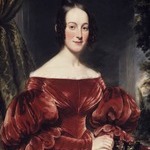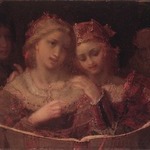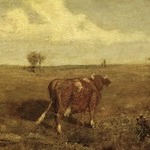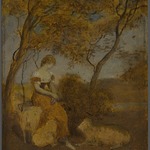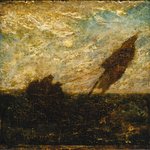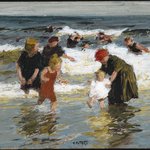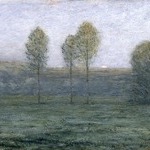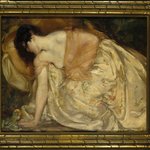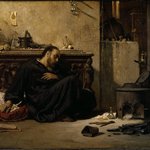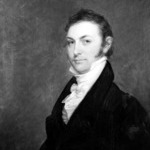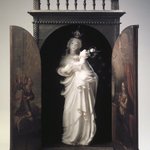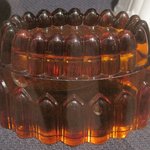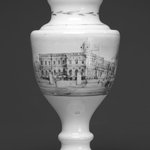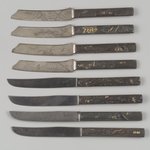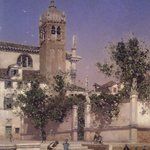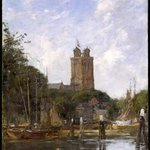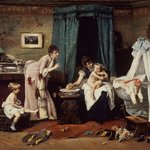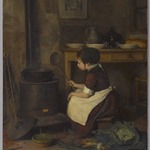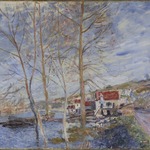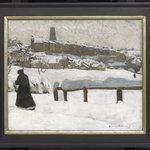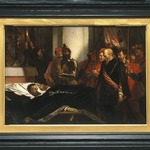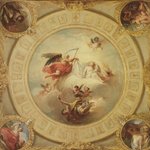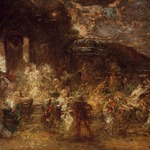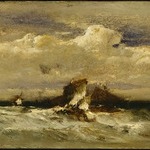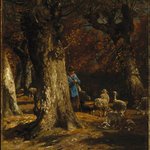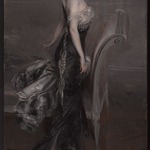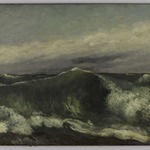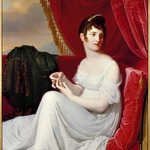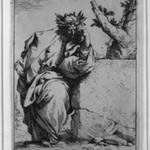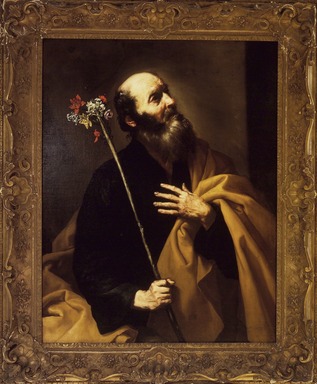
Saint Joseph with the Flowering Rod
Jusepe de Ribera
European Art
On View:
Called “Lo Spagnoletto” (the little Spaniard) by his Italian clientele, the Spanish-born and trained Ribera made his career in Naples, where his major patron, the Duke of Osuna, served as viceroy to the Spanish Bourbon rulers of southern Italy. Following a Spanish tradition initiated by the famed painter El Greco (1541–1614), Ribera painted individual portraits of Christ’s intimates, including his father Saint Joseph and his disciples. According to apocryphal sources, suitors for the Virgin Mary’s hand were to present rods to the high priest of the Temple. When Joseph’s rod bloomed, he was identified as her betrothed. Ribera conveys the unexpected wonder of the moment with the lighting from above and the aged Joseph’s questioning hand gesture.
MEDIUM
Oil on panel
DATES
early 1630s
DIMENSIONS
46 × 35 3/4 in. (116.8 × 90.8 cm)
frame: 57 1/4 × 47 1/4 × 3 1/2 in. (145.4 × 120 × 8.9 cm) (show scale)



SIGNATURE
Signed bottom center: "Jusepe Ribera/F"
COLLECTIONS
European Art
ACCESSION NUMBER
11.563
CREDIT LINE
Gift of George D. Pratt
MUSEUM LOCATION
This item is not on view
CAPTION
Jusepe de Ribera (Spanish, 1591–1652). Saint Joseph with the Flowering Rod, early 1630s. Oil on panel, 46 × 35 3/4 in. (116.8 × 90.8 cm). Brooklyn Museum, Gift of George D. Pratt, 11.563 (Photo: Brooklyn Museum, 11.563.jpg)
IMAGE
overall, 11.563.jpg. Brooklyn Museum photograph
"CUR" at the beginning of an image file name means that the image was created by a curatorial staff member. These study images may be digital point-and-shoot photographs, when we don\'t yet have high-quality studio photography, or they may be scans of older negatives, slides, or photographic prints, providing historical documentation of the object.
RIGHTS STATEMENT
No known copyright restrictions
This work may be in the public domain in the United States. Works created by United States and non-United States nationals published prior to 1923 are in the public domain, subject to the terms of any applicable treaty or agreement.
You may download and use Brooklyn Museum images of this work. Please include caption information from this page and credit the Brooklyn Museum. If you need a high resolution file, please fill out our online application form (charges apply).
The Museum does not warrant that the use of this work will not infringe on the rights of third parties, such as artists or artists' heirs holding the rights to the work. It is your responsibility to determine and satisfy copyright or other use restrictions before copying, transmitting, or making other use of protected items beyond that allowed by "fair use," as such term is understood under the United States Copyright Act.
The Brooklyn Museum makes no representations or warranties with respect to the application or terms of any international agreement governing copyright protection in the United States for works created by foreign nationals.
For further information about copyright, we recommend resources at the United States Library of Congress, Cornell University, Copyright and Cultural Institutions: Guidelines for U.S. Libraries, Archives, and Museums, and Copyright Watch.
For more information about the Museum's rights project, including how rights types are assigned, please see our blog posts on copyright.
If you have any information regarding this work and rights to it, please contact copyright@brooklynmuseum.org.
RECORD COMPLETENESS
Not every record you will find here is complete. More information is available for some works than for others, and some entries have been updated more recently. Records are frequently reviewed and revised, and we welcome any additional information you might have.
